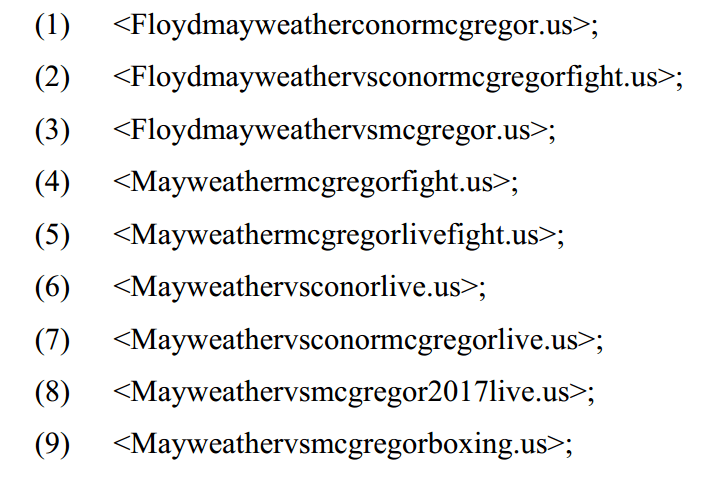“Public Figure” Threatened With Exposure Over Gay Piracy ‘Fine’
jeudi 17 août 2017 à 10:13 Flava Works is an Illinois-based company specializing in adult material featuring black and Latino men. It operates an aggressive anti-piracy strategy which has resulted in some large damages claims in the past.
Flava Works is an Illinois-based company specializing in adult material featuring black and Latino men. It operates an aggressive anti-piracy strategy which has resulted in some large damages claims in the past.
Now, however, the company has found itself targeted by a lawsuit filed by one of its alleged victims. Filed in a California district court by an unnamed individual, it accuses Flava Works of shocking behavior relating to a claim of alleged piracy.
According to the lawsuit, ‘John Doe’ received a letter in early June from Flava Works CEO Phillip Bleicher, accusing him of Internet piracy. Titled “Settlement Demand and Cease and Desist”, the letter got straight to the point.
“Flava Works is aware that you have been ‘pirating’ the content from its website(s) for your own personal financial benefit,” the letter read.
[Update: ‘John Doe’ has now been identified as Marc Juris, President & General Manager of AMC-owned WE tv. All references to John Doe below refer to Juris. See note at footer]
As is often the case with such claims, Flava Works offered to settle with John Doe for a cash fee. However, instead of the few hundred or thousand dollars usually seen in such cases, the initial settlement amount was an astronomical $97,000. But that wasn’t all.
According to John Doe, Bleicher warned that unless the money was paid in ten days, Flava Works “would initiate litigation against [John Doe], publically accusing him of being a consumer and pirate of copyrighted gay adult entertainment.”
Amping up the pressure, Bleicher then warned that after the ten-day deadline had passed, the settlement amount of $97,000 would be withdrawn and replaced with a new amount – $525,000.
The lawsuit alleges that Bleicher followed up with more emails in which he indicated that there was still time to settle the matter “one on one” since the case hadn’t been assigned to an attorney. However, he warned John Doe that time was running out and that public exposure via a lawsuit would be the next step.
While these kinds of tactics are nothing new in copyright infringement cases, the amounts of money involved are huge, indicating something special at play. Indeed, it transpires that John Doe is a public figure in the entertainment industry and the suggestion is that Flava Works’ assessment of his “wealth and profile” means he can pay these large sums.
According to the suit, on July 6, 2017, Bleicher sent another email to John Doe which “alluded to [his] high-profile status and to the potential publicity that a lawsuit would bring.” The email went as far as threatening an imminent Flava Works press release, announcing that a public figure, who would be named, was being sued for pirating gay adult content.
Flava Works alleges that John Doe uploaded its videos to various BitTorrent sites and forums, but John Doe vigorously denies the accusations, noting that the ‘evidence’ presented by Flava Works fails to back up its claims.
“The materials do not reveal or expose infringement of any sort. [Flava Works’] real purpose in sending this ‘proof’ was to demonstrate just how humiliating it would be to defend against Flava Works’ scurrilous charges,” John Doe’s lawsuit notes.
“[Flava Works’] materials consist largely of screen shots of extremely graphic images of pornography, which [Flava Works] implies that [John Doe] has viewed — but which are completely irrelevant given that they are not Flava Works content. Nevertheless, Bleicher assured [John Doe] that these materials would all be included in a publicly filed lawsuit if he refused to accede to [Flava Works’] payment demands.”
From his lawsuit (pdf) it’s clear that John Doe is in no mood to pay Flava Works large sums of cash and he’s aggressively on the attack, describing the company’s demands as “criminal extortion.”
He concludes with a request for a declaration that he has not infringed Flava Works’ copyrights, while demanding attorneys’ fees and further relief to be determined by the court.
The big question now is whether Flava Works will follow through with its threats to exposure the entertainer, or whether it will drift back into the shadows to fight another day. Definitely one to watch.
Update: Flava Works has now followed through on its threat to sue Juris. A complaint filed iat an Illinois court accuses the TV executive of uploading Flava Works titles to several gay-focused torrent sites in breach of copyright. It demands $1.2m in damages.
Source: TF, for the latest info on copyright, file-sharing, torrent sites and ANONYMOUS VPN services.


 Trouble continues for HBO as another episode of the popular Game of Thrones series has just leaked online, days ahead of the official premiere.
Trouble continues for HBO as another episode of the popular Game of Thrones series has just leaked online, days ahead of the official premiere.
 Earlier this year, a group of well-known labels targeted
Earlier this year, a group of well-known labels targeted  In recent years it has become much easier to stream movies and TV-shows over the Internet.
In recent years it has become much easier to stream movies and TV-shows over the Internet. 